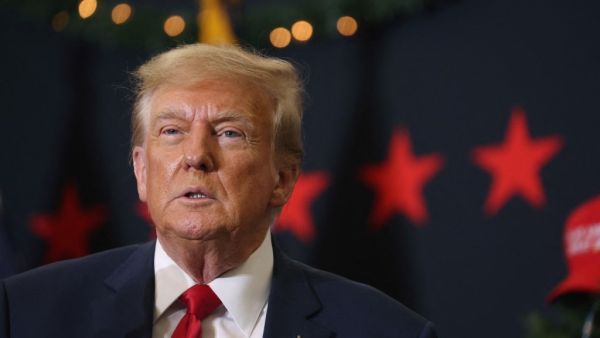Former President Donald Trump is facing more legal challenges as the Colorado Supreme Court has ruled that he is ineligible to run for president again in 2024 under the state’s constitution.
The court, which consists of seven justices appointed by Democrats, decided to remove Trump from the state’s primary ballot after finding that he engaged in an insurrection on January 6, 2021, when he incited his supporters to storm the US Capitol and disrupt the certification of Joe Biden’s victory.
The court rejected Trump’s argument that his speech was protected by the First Amendment and that he did not intend to cause violence or interfere with the electoral process. The court also rejected his claim that Section 3 of the 14th Amendment, which bars anyone who engaged in insurrection or rebellion against the US from holding any office under the federal government, does not apply to him because it only targets former Confederate officials after the Civil War.
The court said that Section 3 of the 14th Amendment is a “sweeping provision” that covers anyone who participates in an armed uprising against the US government, regardless of their rank or position. The court cited several examples of people who were disqualified from holding office under this clause, such as John C. Calhoun, Jefferson Davis, and John Wilkes Booth.
The court also noted that Section 3 of the 14th Amendment does not specify which offices are affected by its disqualification clause, and that it could potentially apply to any federal officer or employee. The court said that it was not bound by previous interpretations of this clause by other courts or scholars, and that it had to apply it in light of its own constitutional duty to uphold and enforce its provisions.
The decision by the Colorado Supreme Court is likely to be appealed to higher courts, including the US Supreme Court, which has never ruled on whether Section 3 of the 14th Amendment applies to presidential candidates. However, legal experts say that such an appeal would face significant hurdles and uncertainties, as there is no clear precedent or consensus on this issue.
Meanwhile, Trump is also facing legal troubles in other states where lawsuits have been filed to challenge his eligibility for office under similar grounds. In Texas, a group of voters has sued to remove Trump from the state’s ballot under Section 3 of the 14th Amendment. In Georgia, a group of voters has sued to remove Trump from the state’s ballot under Section 2(b) of Article II of the Constitution. In New York, a group of voters has sued to remove Trump from all state ballots under Section 2(b) of Article II of the Constitution.
Trump has denied any wrongdoing and has vowed to fight back against these lawsuits. He has also continued to spread false claims about election fraud and accuse his political opponents of trying to undermine his presidency. He has also hinted at running again in 2024 and suggested that he might pardon some of his supporters who were charged for their involvement in the January 6 attack.
Trump’s legal woes are likely to continue as he faces more scrutiny and opposition from various parties who seek to hold him accountable for his actions and prevent him from returning to power.







